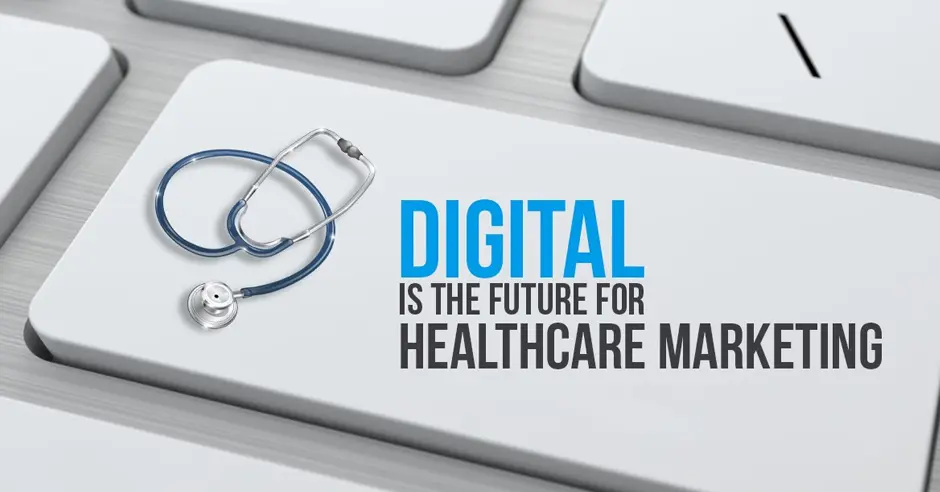
The healthcare industry is one of the most rapidly evolving sectors in the world, driven by technological advancements, changing patient behavior, and increasing competition. In this landscape, digital marketing has emerged as a crucial component of healthcare organizations’ marketing strategies.
Why Digital Marketing Matters in Healthcare
- Increased online engagement: Patients are increasingly turning to the internet to research healthcare services, read reviews, and share their experiences. Digital marketing helps healthcare organizations connect with patients, build their online reputation, and create a strong online presence.
- Improved patient outcomes: Digital marketing enables healthcare organizations to provide relevant information to patients, improving patient education, engagement, and satisfaction. This, in turn, can lead to better health outcomes, reduced healthcare costs, and increased patient loyalty.
- Compliance and regulatory requirements: Digital marketing in healthcare must adhere to strict regulatory requirements, such as HIPAA, which governs the handling of sensitive patient data. Healthcare organizations must ensure that their digital marketing efforts comply with these regulations to avoid reputational damage and penalties.
- Targeted marketing: Digital marketing allows healthcare organizations to target specific patient groups, such as those with chronic conditions, pregnant women, or patients with specific needs. This targeted approach ensures that messaging is relevant and resonates with the intended audience.
- Cost-effectiveness: Digital marketing is often more cost-effective than traditional marketing methods, such as print or broadcast media. This allows healthcare organizations to allocate their marketing budgets more efficiently and make the most of their resources.
Key Digital Marketing Strategies for Healthcare
- Search Engine Optimization (SEO): Healthcare organizations must optimize their website and online content to ensure they appear in search engine results pages (SERPs) for relevant keywords. This increases online visibility, drives organic traffic, and improves patient engagement.
- Content Marketing: Creating and sharing valuable, relevant, and consistent content attracts and retains a clearly defined audience. This includes blog posts, whitepapers, case studies, and social media content that addresses the needs of patients, caregivers, and healthcare professionals.
- Email Marketing: Email marketing allows healthcare organizations to engage with existing patients, promote services, and nurture leads. Segmented email campaigns can be used to personalize messaging and improve response rates.
- Social Media Marketing: Social media platforms provide an opportunity for healthcare organizations to connect with patients, share educational content, and promote services. Social media also enables two-way communication, allowing patients to ask questions and provide feedback.
- Online Advertising: Online advertising, including Google Ads, Facebook Ads, and native advertising, enables healthcare organizations to target specific patient groups and drive website traffic.
Digital Marketing Tools for Healthcare
- Patient Portals: Secure online portals that enable patients to access their medical records, communicate with healthcare providers, and schedule appointments.
- Practice Management Systems (PMS): Integrated systems that manage patient records, scheduling, billing, and other administrative tasks.
- Electronic Health Records (EHRs): Digital records that store patient data, including medical history, test results, and medication lists.
- Marketing Automation Platforms: Tools that automate lead nurturing, email campaigns, and social media posting.
- Analytics and Reporting Tools: Metrics and insights that track website traffic, patient engagement, and marketing performance.
Best Practices for Digital Marketing in Healthcare
- Ensure compliance with regulatory requirements: HIPAA, FDA, and other regulatory agencies set standards for digital marketing in healthcare.
- Develop a patient-centered approach: Focus on the needs, preferences, and behaviors of patients, caregivers, and healthcare professionals.
- Use secure and reliable infrastructure: Protect patient data and ensure seamless interactions between systems and tools.
- Continuously monitor and optimize: Regularly review digital marketing performance, adjust strategies, and adapt to changing patient behaviors and market trends.
- Stay up-to-date with industry developments: Participate in conferences, workshops, and online communities to stay informed about the latest trends, best practices, and technologies in digital marketing for healthcare.
Conclusion
Digital marketing has become a crucial component of healthcare organizations’ marketing strategies, enabling them to connect with patients, improve patient outcomes, and meet regulatory requirements. By leveraging digital marketing tools, such as SEO, content marketing, email marketing, social media marketing, and online advertising, healthcare organizations can increase their online presence, drive engagement, and achieve their marketing objectives.